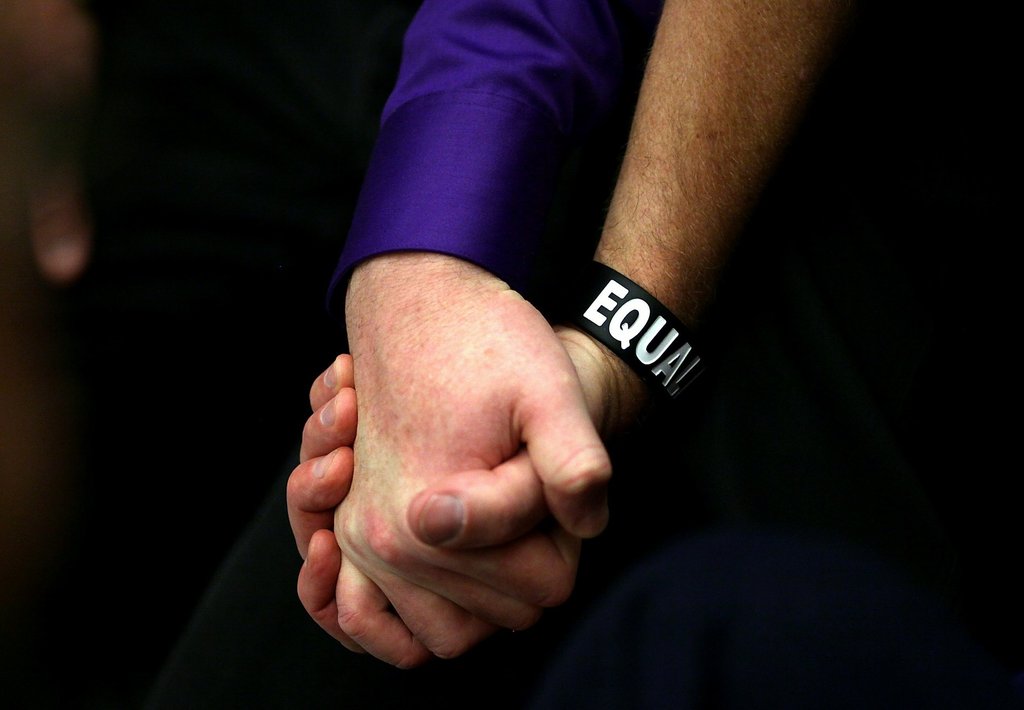Since obama set the precedence of not defending us law, we now have payback and this is great!
Trump Sides With Texas, Won’t Defend Obamacare in Court
Kartikay MehrotraJune 7, 2018, 11:16 PM CDT
Photographer: Daniel Acker/Bloomberg
politics
By
The Justice Department is tasked with defending federal statutes. But in this instance it agrees with the state that the individual mandate and other requirements should be deemed illegitimate as of Jan. 1, 2019.
Since Congress repealed the penalty for not having insurance in its tax reform package last year, much of the rest of the insurance statute becomes unconstitutional in 2019 and must be “struck down,” attorneys for the Justice Department said in a court filing Thursday. Such provisions include protecting people with pre-existing medical conditions from being charged more or being denied coverage.
The legal motion is mostly symbolic and any substantive action in the lawsuit will likely take months. In addition, the government doesn’t go so far as Texas and its fellow plaintiffs in arguing that the entire Affordable Care Act and the regulations issued under it are now invalid. For instance, it didn’t go after the creation of health insurance marketplaces, premium subsidies for low-income members and Medicaid expansion.
Supreme Court
While U.S. Attorney General Jeff Sessions argues that no reasonable arguments exist to defend Obamacare, California led a coalition of 15 states and D.C. to fight Texas’s suit, saying the individual mandate has twice survived Supreme Court review and attempts by Congress to repeal the law, thus legitimizing it. Stripping away Obamacare would create a health crisis by putting at risk some $500 billion in health-care funding, according to a statement issued by California Attorney General Xavier Becerra.
In short: The federal government is declining to defend federal law.
Sessions defended the unusual decision in a June 7 letter to Speaker of the House Paul Ryan.
“The Department in the past has declined to defend a statute in cases in which the president has concluded that the statute is unconstitutional and made manifest that it should not be defended, as is the case here,” Sessions wrote. “The Department will not defend the constitutionality” of the Affordable Care Act.
Three attorneys for the government withdrew from the case just minutes before the Justice Department’s filing in federal court in Fort Worth, Texas, which signaled an internal rift within the administration over its role in defending U.S. law, according to University of Michigan Law Professor Nicholas Bagley.
While Justice Department attorneys often advocate for laws they may personally disagree with, those three civil servants instead decided to exit from the case, which Bagley described as “almost unheard of.”
The case is Texas v. U.S., 4:18-cv-001 67, U.S. District Court, Northern District of Texas (Fort Worth).
Trump Sides With Texas, Won’t Defend Obamacare in Court
Kartikay MehrotraJune 7, 2018, 11:16 PM CDT
Photographer: Daniel Acker/Bloomberg
politics
By
- Sessions cites tax reform act’s repeal of individual mandate
- California-led group is left to defend Obamacare in lawsuit
The Justice Department is tasked with defending federal statutes. But in this instance it agrees with the state that the individual mandate and other requirements should be deemed illegitimate as of Jan. 1, 2019.
Since Congress repealed the penalty for not having insurance in its tax reform package last year, much of the rest of the insurance statute becomes unconstitutional in 2019 and must be “struck down,” attorneys for the Justice Department said in a court filing Thursday. Such provisions include protecting people with pre-existing medical conditions from being charged more or being denied coverage.
The legal motion is mostly symbolic and any substantive action in the lawsuit will likely take months. In addition, the government doesn’t go so far as Texas and its fellow plaintiffs in arguing that the entire Affordable Care Act and the regulations issued under it are now invalid. For instance, it didn’t go after the creation of health insurance marketplaces, premium subsidies for low-income members and Medicaid expansion.
Supreme Court
While U.S. Attorney General Jeff Sessions argues that no reasonable arguments exist to defend Obamacare, California led a coalition of 15 states and D.C. to fight Texas’s suit, saying the individual mandate has twice survived Supreme Court review and attempts by Congress to repeal the law, thus legitimizing it. Stripping away Obamacare would create a health crisis by putting at risk some $500 billion in health-care funding, according to a statement issued by California Attorney General Xavier Becerra.
In short: The federal government is declining to defend federal law.
Sessions defended the unusual decision in a June 7 letter to Speaker of the House Paul Ryan.
“The Department in the past has declined to defend a statute in cases in which the president has concluded that the statute is unconstitutional and made manifest that it should not be defended, as is the case here,” Sessions wrote. “The Department will not defend the constitutionality” of the Affordable Care Act.
Three attorneys for the government withdrew from the case just minutes before the Justice Department’s filing in federal court in Fort Worth, Texas, which signaled an internal rift within the administration over its role in defending U.S. law, according to University of Michigan Law Professor Nicholas Bagley.
While Justice Department attorneys often advocate for laws they may personally disagree with, those three civil servants instead decided to exit from the case, which Bagley described as “almost unheard of.”
The case is Texas v. U.S., 4:18-cv-001 67, U.S. District Court, Northern District of Texas (Fort Worth).









